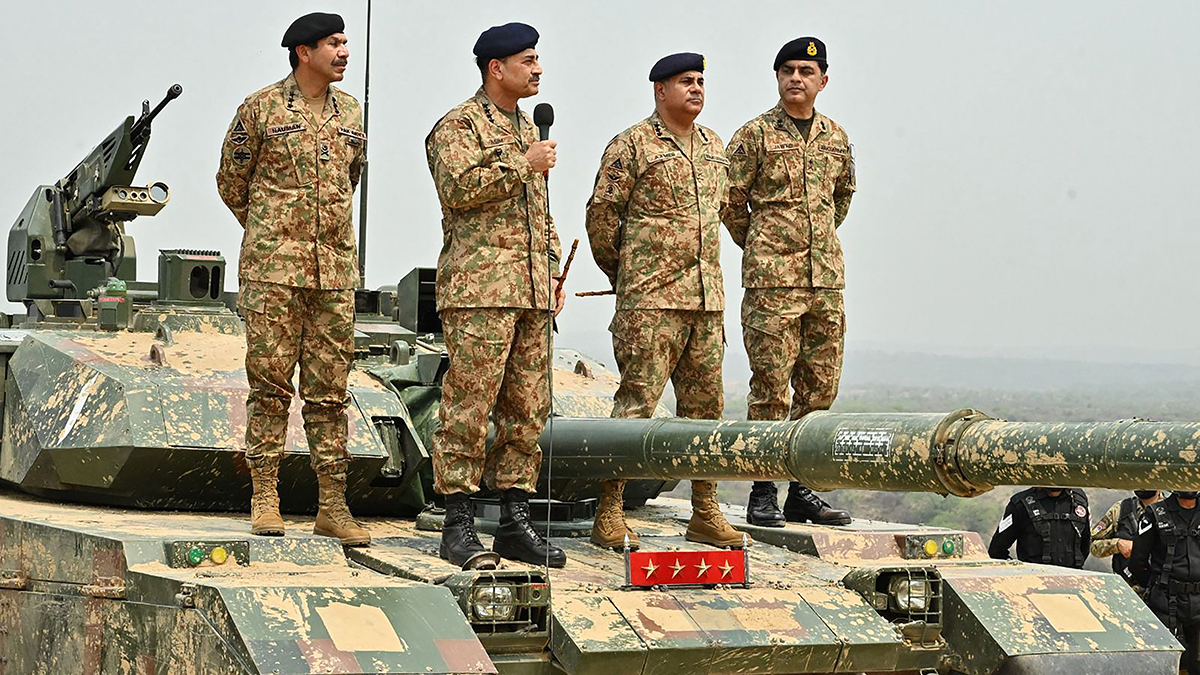Only one Pakistan Army Chief has ever been promoted to Field Marshal before Asim Munir
 In the firing line: General Asim Munir (with the mic) at a field training exercise in Jhelum, Punjab province | AFP
In the firing line: General Asim Munir (with the mic) at a field training exercise in Jhelum, Punjab province | AFP
Pakistan's federal cabinet on Tuesday announced the promotion of Chief of Army Staff (COAS) General Asim Munir to the post of field marshal, in an apparent bid to peddle its propaganda of victory in the conflict against India. The rank of field marshal is the highest in the Pakistan Army, built on the patronage of the British Army.
The Cabinet claimed Asim Munir "led the country to victory in Operation Bunyanum Marsoos". "The Government of Pakistan has approved the promotion of General Syed Asim Munir to the rank of field marshal for ensuring the security of the country and defeating the enemy based on the high strategy and courageous leadership during Marka-i-Haq and Operation Bunyanum Marsoos," the Prime Minister’s Office (PMO) said in a statement after a federal cabinet meeting chaired by Prime Minister Shehbaz Sharif.
This despite satellite images telling a different story. Pakistan suffered huge damage to its air bases and terror locations deep inside the country, as evident from the satellite images released by Western media. Many see the conflict with India as a ploy to garner public support for the Army, which ended up being deeply unpopular after the jailing of PTI leader and former Prime Minister Imran Khan.
Pakistan's move to promote Asim Munir to the post of Field Marshal also reflects the country's propaganda of "success" in the war, as only one Army chief in the country's history has ever been promoted to the post. It was none other than General Ayub Khan, who self-promoted himself. General Khan went on to be a dictator of Pakistan for 11 years.
Khan self-promoted himself in 1959, as he became the first Commander-in-Chief of the Pakistan Army and later became the President of Pakistan after a military coup in 1958, after overthrowing the then-President Iskandar Ali Mirza. Many see Ayub Khan’s elevation as a move tied to power consolidation.
Under Ayub Khan's leadership, India and Pakistan embarked on a war triggered by a series of border clashes which escalated into a larger conflict in 1965. India thrashed Pakistan in the war, which eventually resulted in Ayub Khan's resignation.
The post, though a symbolic one, comes with relevance, making it difficult for the elected government to combat any unconstitutional political movement carried out by the Army.
World